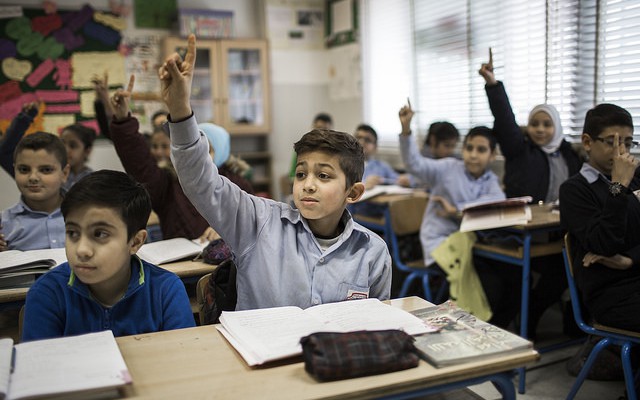Refugee Engagement with History Education in Inner-city Schools
As a History teacher in an inner London school, there is a huge amount of diversity between students’ backgrounds, beliefs, religions and traditions.
Something that as a teacher I thrive off, and use in my reflective practice to address historical and cultural misconceptions constantly. With the worsening worldwide political climate, the amount of refugee students in the classroom has increased. The climate of increased racism and anti-Semitism across Britain has led to heightened religious identities of students, with ideas developing from the home.
In the English National Curriculum for education, by law, children are to be taught about the Holocaust as part of the Key Stage 3 (11-13); in fact, the Holocaust is the only historical event whose study is compulsory on the National Curriculum. Not only is the inclusion of the Holocaust subject to vast educational debate, the pedagogy of the Holocaust is also controversial. The interest in taking my studies further came about when in class, I was teaching a group of 30 year 9 students about the Holocaust, in one of the early lessons, looking at antisemitism over time. During this lesson, the boisterous and ethnically diverse class were having a number of interesting discussions, which led to a very in-depth and political standoff between myself and a young boy.
To sum up the argument, he told me that he wasn’t interested in learning about this topic as it had been made bigger by the government and had become too tangled a situation, and he was interested in learning about the plight of the Palestinians.
He told me, without holding back, and with the whole class watching on, that he hated all Jews. They were the reason that he had to be in school in England and so why should he learn about a Jewish topic in History when we don’t look at any other religions.
This led me to starting a PhD in looking at how these students engage with the way we teach History in London schools, particularly topics like the Holocaust, which I am undertaking at the University of Winchester. Although at the very early stages of the research, I have already found that the self-identity of students is paramount to their learning, from how intelligent they think they are to the relevance they find with the topic. Something that has become clear is the importance of the notion of belonging.
The idea of “where are you from” is almost an obsession amongst students.
The majority of students spoken to, whether born in Poland with Nigerian parents now living in London, or born in Syria, having lived in Germany and now London, don’t state that the place that they were born, or live is where they are from, and that it is a more deep rooted idea of heritage and belonging. For example, simply that I was born in London and my parents were too, in their eyes, does not make me British. Because my grandpa was German makes from Germany. This is particularly apt when studying the Holocaust and getting students to consider the plight of groups of people targeted because of their race or religion, and how a small number of these became refugees themselves.
Obviously, the next steps for this project are to get in and observe the students in their lessons, to have conversations around their engagement with education, and what is being experienced in the classroom. I am hoping that this is something I can achieve quickly, funding dependent, and really look forward to seeing where the research takes me and how I can then follow that up.
